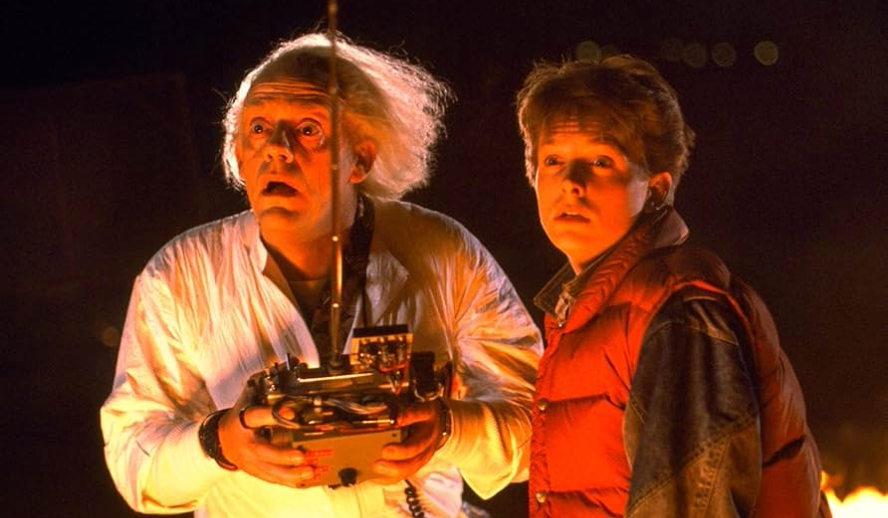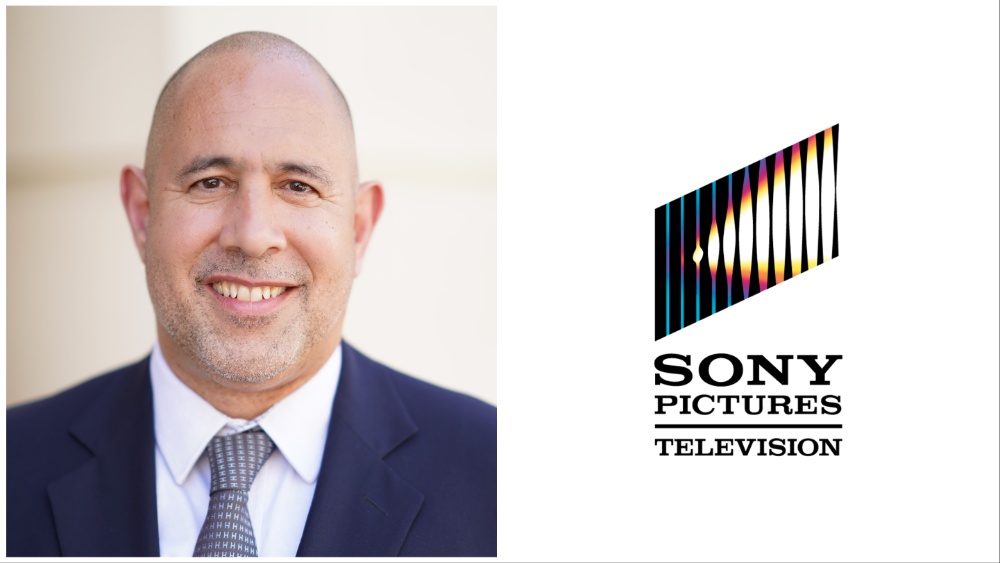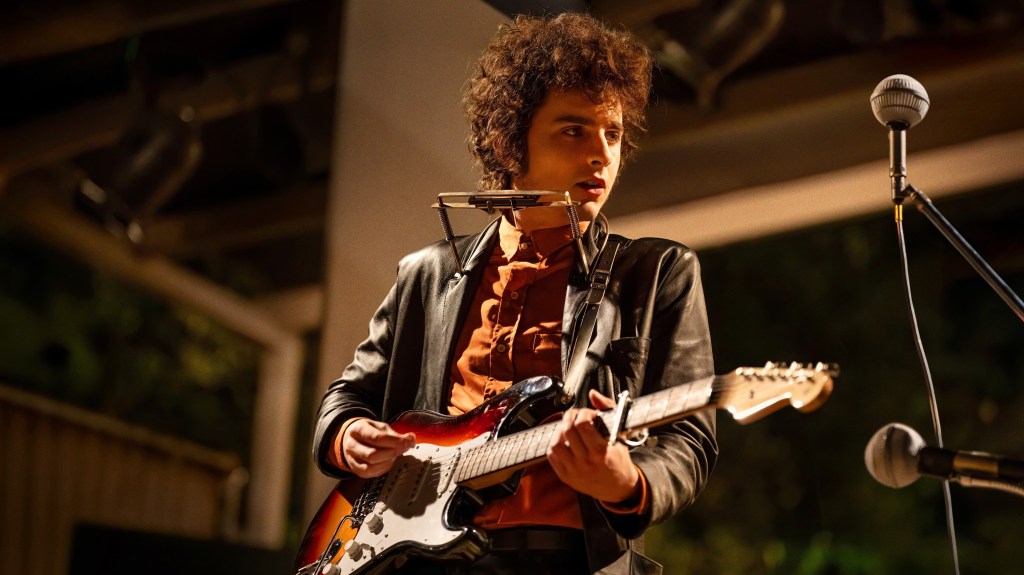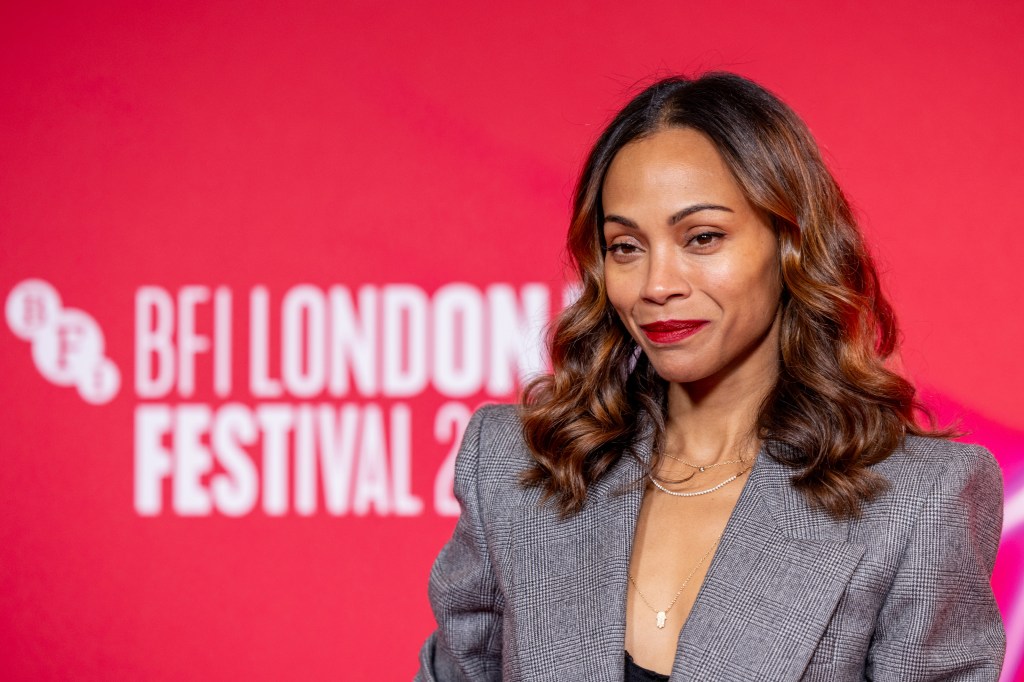Forty years ago, audiences watched Marty McFly jump into a DeLorean and race across time, and pop culture has never been the same. When it was released in 1985, ‘Back to the Future’ wasn’t just a commercial hit, it became a cultural milestone that redefined storytelling. With its unique premise, snappy script, and surprisingly tender emotional arcs, the film continues to resonate with new generations. It proves that great storytelling transcends decades, and sometimes, even time itself.
Things to do:
- Subscribe to The Hollywood Insider’s YouTube Channel, by clicking here.
- Limited Time Offer – FREE Subscription to The Hollywood Insider
- Click here to read more on The Hollywood Insider’s vision, values and mission statement here – Media has the responsibility to better our world – The Hollywood Insider fully focuses on substance and meaningful entertainment, against gossip and scandal, by combining entertainment, education, and philanthropy.
The Perfect Fusion of Concept and Character
At its core, ‘Back to the Future’ is a teen coming-of-age story wrapped in the mechanics of science fiction. Marty (Michael J. Fox) is an archetypal ’80s teen, a little lost, a little reckless, and deeply unsure of his place in the world. The time travel plot, while wild, isn’t just about technology; it’s about perspective. Going back in time gives Marty the tools to see his family differently, and ultimately, to shape a more hopeful future for himself.
The relationship between Marty and Doc Brown (Christopher Lloyd) grounds the film with an extraordinary intergenerational friendship. Their dynamic is full of camaraderie, humor, and mutual admiration. It’s that emotional thread that gives ‘Back to the Future’ its lingering power.
WATCH THE TRAILER of the Film and the Revolution: ‘Can I Go Home Now?’
The Children Around the World Continue to Ask the question
The Legacy of Doc Brown and Marty McFly
Christopher Lloyd’s portrayal of Doc Brown is nothing short of legendary, a perfect blend of crazy energy, scientific brilliance, and unexpected emotional depth. With his wild hair, bug-eyed expressions, and frantic delivery, Lloyd created a character that was both cartoonish and deeply human. Doc Brown could’ve easily been played for laughs alone, but Lloyd infused him with vulnerability. He wasn’t just Marty’s eccentric sidekick; he was a man who believed in possibility, even when the odds didn’t quite add up.
Related Article: https://www.hollywoodinsider.com/top-10-disney-sidekicks-ranked-pixar/
Over the years, Doc Brown has become an icon in his own right. He’s the prototype for the quirky genius trope in everything from animated series to modern superhero films. As much as Marty was the heart of the film, Doc was its soul, reminding audiences that knowledge, wonder, and human connection aren’t mutually exclusive.
Likewise, Michael J. Fox’s performance as Marty is still one of the most classic in film history. He brought energy, originality, and comedic timing to a role that could have easily been generic. Instead, Marty became an example of the universal feeling of wanting to belong and make a difference.
Marty’s arc, much like the film’s broader themes, is about agency. The future isn’t fixed. Our choices matter. Even today, that message feels more urgent than ever. Marty isn’t perfect, but he learns, adapts, and ultimately becomes the driver of his own story, literally and metaphorically.
Related Article: https://www.hollywoodinsider.com/power-of-science-fiction/
Scripted Precision
The screenplay by Robert Zemeckis and Bob Gale received widespread praise and for good reason. The script is a great example of the setup and payoff technique, from the seemingly throwaway lines that become key to the plot to the way character arcs evolve within the chaos of time travel. Few blockbusters are as tightly written, and even fewer can juggle multiple genres including comedy, romance, sci-fi, and teen angst, without losing control.
Related Article: https://www.hollywoodinsider.com/adapted-vs-original-screenplays/
This skillful writing helped establish a model for blockbuster screenwriting that endures today, complete with lean structure, emotional stakes, and a big concept tethered to a relatable protagonist. In many ways, Marty McFly paved the way for a generation of reluctant heroes, from Peter Parker to Scott Lang.
The Irony of Nostalgia
It’s easy to forget that ‘Back to the Future’ was already engaging with nostalgia when it first came out. The 1980s film looked back to the 1950s with a mix of hilarity and critique. It played with generational divides, parental expectations, and suburban ideals, all while sneaking in commentary on race, gender roles, and consumer culture.
Watching the film now, with 1985 even more distant as 1955 was back then, the nostalgia feels especially sharp. We’re not just nostalgic for the ’50s or the ’80s, but for the film’s unique way of holding both eras up to the light.
Related Article: https://www.hollywoodinsider.com/nostalgia-hollywood-remakes/
A Cultural Blueprint
Few other films have had the merchandising and multimedia impact of ‘Back to the Future.’ From toys and comics to a theme park ride at Universal Studios and a Broadway musical, the film continues to live in pop culture in ways that go far beyond the screen. Phrases like “88 miles per hour,” “Great Scott!” and even “flux capacitor” have entered the cultural vernacular.
The movie also changed how audiences thought about time travel stories. It wasn’t the first to tackle the idea, but it made the mechanics more accessible and the stakes more personal. Time travel became not just a way to explore big ideas, but to ask small, personal questions.
Why It Still Resonates
In 2025, audiences are surrounded by alternate timelines, Cinematic universes, and multiverse narratives. Yet ‘Back to the Future’ still feels singular. Its optimism is not forced, its characters are fully human, and its visual effects, while dated, are used in service of the story rather than mere spectacle.
Moreover, the film’s core question, “What if you could go back and fix things?,” remains perennially relevant. Whether it’s about family, regret, or rewriting our own narratives, the fantasy of time travel continues to resonate. But unlike many darker interpretations, ‘Back to the Future’ reinforces that we can learn from the past without being defined by it.
The film doesn’t lean into cynicism; it maintains a belief in growth, redemption, and the idea that small actions can ripple into big change. That emotional clarity, paired with a genuine sense of fun, makes it stand out even more starkly in a media landscape that is often overcome by bleakness or irony. While other time travel stories have become more tangled, philosophical, or brooding, ‘Back to the Future’ keeps its heart front and center. That’s not just a stylistic choice, it’s a worldview.
As ‘Back to the Future’ turns 40, it invites celebration and reflection. It’s a story about change, wrapped in a movie that somehow hasn’t. No matter how far we go into the future, there’s always something worth returning to.
By Rachel Squire
Click here to read The Hollywood Insider’s CEO Pritan Ambroase’s love letter to Cinema, TV and Media. An excerpt from the love letter: The Hollywood Insider’s CEO/editor-in-chief Pritan Ambroase affirms, “We have the space and time for all your stories, no matter who/what/where you are. Media/Cinema/TV have a responsibility to better the world and The Hollywood Insider will continue to do so. Talent, diversity and authenticity matter in Cinema/TV, media and storytelling. In fact, I reckon that we should announce “talent-diversity-authenticity-storytelling-Cinema-Oscars-Academy-Awards” as synonyms of each other. We show respect to talent and stories regardless of their skin color, race, gender, sexuality, religion, nationality, etc., thus allowing authenticity into this system just by something as simple as accepting and showing respect to the human species’ factual diversity. We become greater just by respecting and appreciating talent in all its shapes, sizes, and forms. Award winners, which includes nominees, must be chosen on the greatness of their talent ALONE.
I am sure I am speaking for a multitude of Cinema lovers all over the world when I speak of the following sentiments that this medium of art has blessed me with. Cinema taught me about our world, at times in English and at times through the beautiful one-inch bar of subtitles. I learned from the stories in the global movies that we are all alike across all borders. Remember that one of the best symbols of many great civilizations and their prosperity has been the art they have left behind. This art can be in the form of paintings, sculptures, architecture, writings, inventions, etc. For our modern society, Cinema happens to be one of them. Cinema is more than just a form of entertainment, it is an integral part of society. I love the world uniting, be it for Cinema, TV, media, art, fashion, sport, etc. Please keep this going full speed.”
More Interesting Stories From The Hollywood Insider
– Want GUARANTEED SUCCESS? Remove these ten words from your vocabulary| Transform your life INSTANTLY
– A Tribute to Martin Scorsese: A Complete Analysis of the Life and Career of the Man Who Lives and Breathes Cinema
– Do you know the hidden messages in ‘Call Me By Your Name’? Find out behind the scenes facts in the full commentary and In-depth analysis of the cinematic masterpiece
– A Tribute To The Academy Awards: All Best Actor/Actress Speeches From The Beginning Of Oscars 1929-2019 | From Rami Malek, Leonardo DiCaprio To Denzel Washington, Halle Berry & Beyond | From Olivia Colman, Meryl Streep To Bette Davis & Beyond
– In the 32nd Year Of His Career, Keanu Reeves’ Face Continues To Reign After Launching Movies Earning Over $4.3 Billion In Total – “John Wick”, “Toy Story 4”, “Matrix”, And Many More
_____________________________________________________________________________

Rachel Squire is a passionate writer with a strong commitment to authentic storytelling and ethical journalism. As a writer for Hollywood Insider, she brings a deep appreciation for cinema’s power to inspire positive change. She values promoting meaningful media over gossip and sensationalism, and strives to contribute to a culture of integrity and substance in entertainment journalism.



